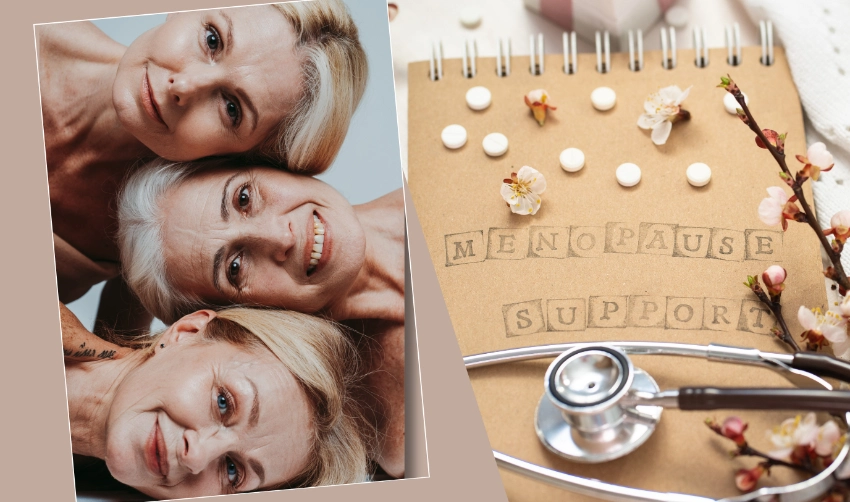Menopause is a natural transition in a woman’s life, marking the end of her reproductive years. During this phase, hormonal fluctuations can give rise to various symptoms like hot flashes, night sweats, mood swings, and sleep disturbances. Many women seek effective and natural ways to manage these symptoms, turning to herbal supplements as a potential solution. In this blog post, we will delve into the world of herbal supplements for menopause, exploring the key benefits, scientific evidence, and considerations surrounding their use. Whether you’re curious about the efficacy of herbal remedies, interested in exploring alternative options, or simply looking for ways to enhance your well-being during menopause, join us as we uncover the power of herbal supplements in addressing menopausal symptoms.
What Exactly Happens During Menopause?

Menopause, a natural biological process, marks the end of a woman’s menstrual cycle. It is diagnosed after a woman has gone 12 months without a menstrual period and typically occurs in a woman’s 40s or 50s. Menopause is a significant phase in a woman’s life as it signifies the end of her fertility period.
The transition to menopause, often referred to as perimenopause, can last for several years. During this time, the ovaries gradually decrease the production of estrogen and progesterone, hormones that regulate menstruation. This hormonal change often leads to irregular periods, which may be heavier or lighter than usual. Symptoms like hot flashes, night sweats, sleep problems, and mood changes often accompany this transition.
Menopause is not a disorder but a natural transition in women’s lives. However, hormonal changes can significantly impact a woman’s quality of life. Decreased estrogen levels can lead to long-term complications such as osteoporosis and heart disease. Therefore, it’s crucial to understand the alterations that transpire throughout menopause and how to manage them effectively. Here is where the benefits of herbal medicines come into play.
Do Herbal Supplements Work for Menopause?
Herbal supplements have been used for centuries to alleviate various health conditions, including menopause symptoms. These natural remedies are often considered a safer alternative to hormone replacement therapy (HRT), which can have side effects and increase the risk of certain types of cancer.
Research has shown that certain herbal supplements can help manage menopause symptoms. As an example, the utilization of black cohosh and red clover has been known to assist in diminishing the occurrence of hot flashes and nocturnal perspiration, while St. John’s wort can help with mood swings and depression. However, the effectiveness of these supplements can vary from person to person, and they are not a one-size-fits-all solution.
It’s important to note that while herbal supplements can help manage menopause symptoms, they are not a cure. They should be used as part of a comprehensive approach to menopause management that includes a healthy diet, regular exercise, and adequate sleep. Prior to initiating any fresh supplement regimen, it is imperative to seek guidance from a healthcare professional in order to ascertain its suitability and safety with regard to your individual requirements. In addition to menopause, herbal remedies can also be effective for other conditions, such as anxiety. Some of the best herbal remedies for anxiety are available in the market.
What Herbal Supplements are Best for Menopause?
Black Cohosh
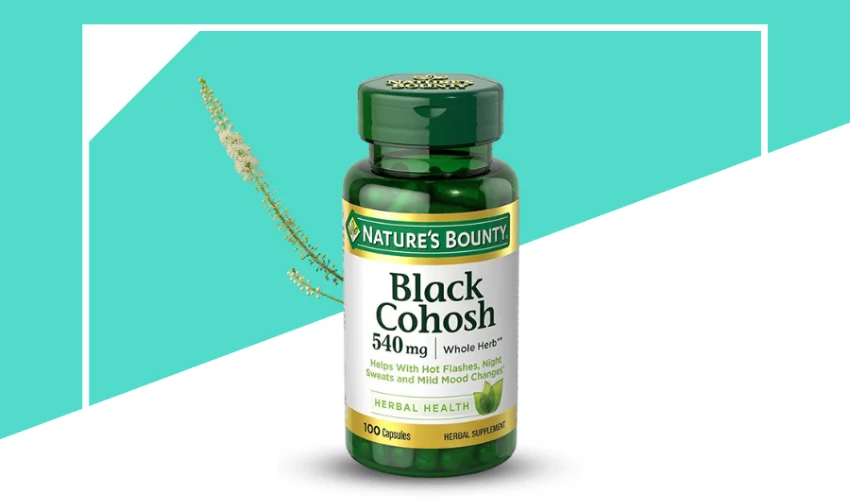
Black Cohosh is a plant native to North America. It has been used for centuries to treat women’s health issues, including menopause symptoms. Some studies suggest it can help reduce hot flashes and improve mood swings.
Red Clover
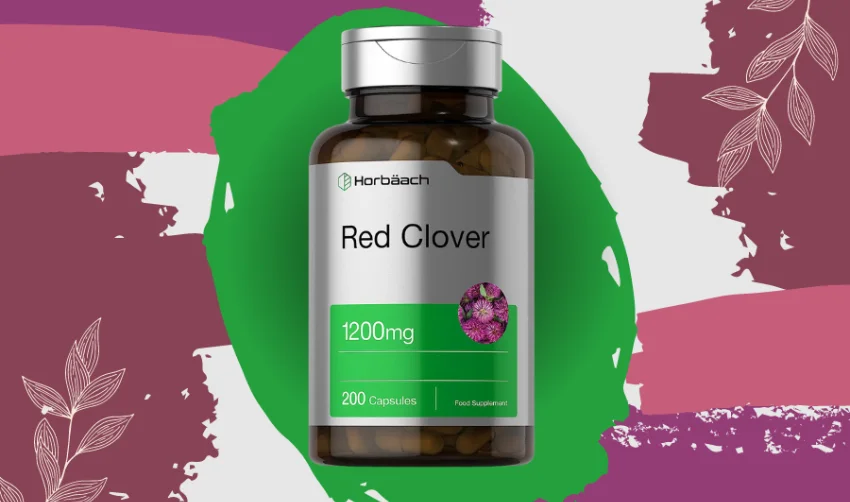
Red Clover, a botanical species rich in isoflavones, which are classified as phytoestrogens that emulate the actions of estrogen within the body, holds the potential to alleviate hot flashes and nocturnal perspiration among women experiencing menopause.
John's Wort

St. John’s Wort is a plant used for centuries to treat mental health disorders. It can help manage mood swings and depression associated with menopause.
Dong Quai
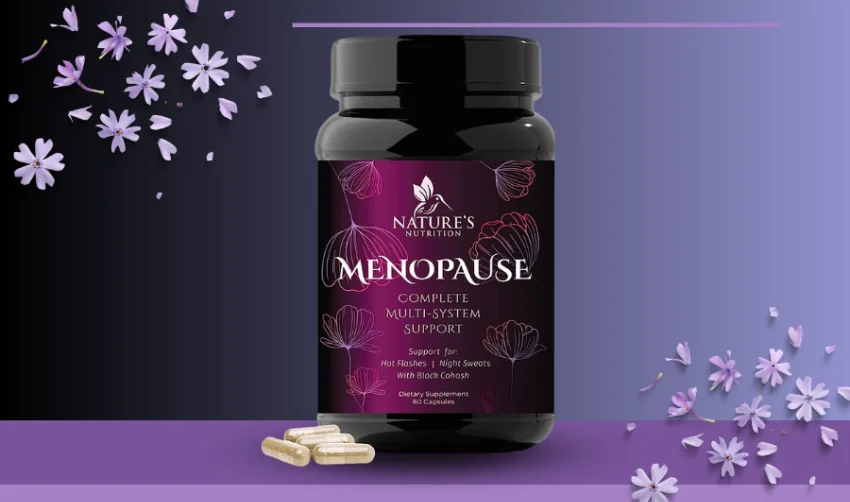
Dong Quai, recognized as Chinese Angelica, has a long-standing history in traditional Chinese medicine, spanning thousands of years, where it has been employed to address diverse health ailments. It is believed to help balance hormone levels and alleviate menopause symptoms.
Evening Primrose Oil
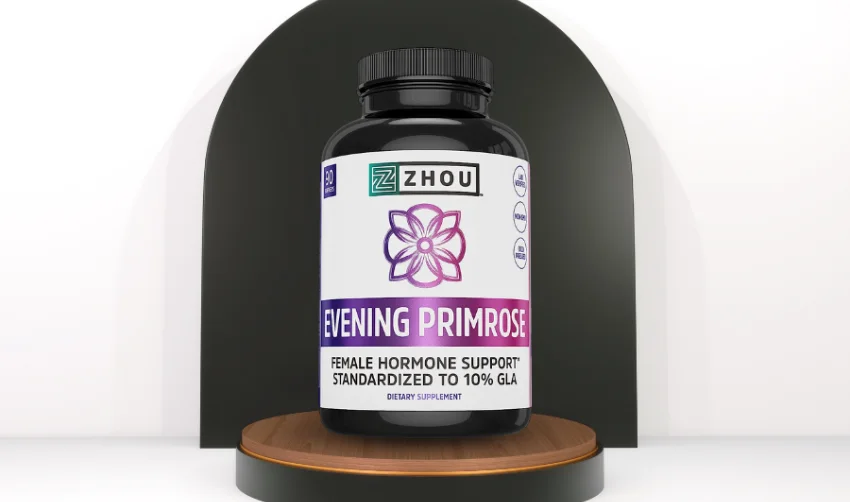
Evening Primrose Oil is extracted from the seeds of the Evening Primrose plant, yielding a valuable natural resource. It is rich in gamma-linolenic acid (GLA), a fatty acid that can help reduce hot flashes and other menopause symptoms.
Ginseng
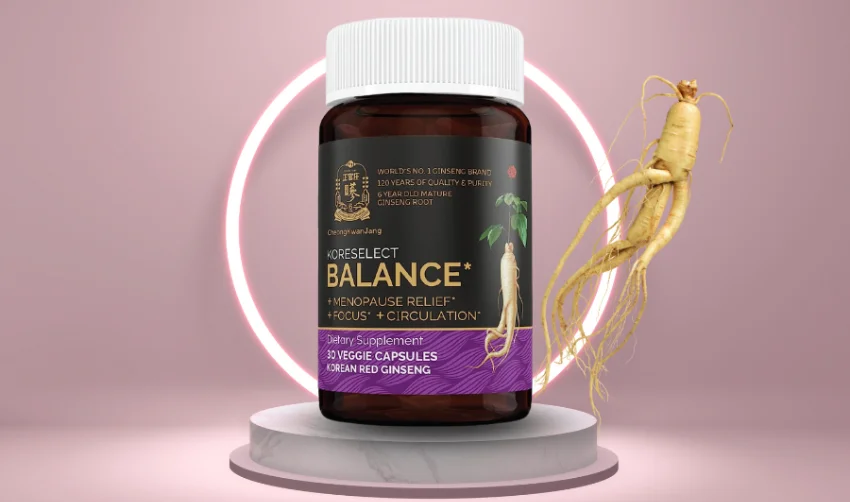
Ginseng is a popular herb used to produce traditional medicines. It is believed to help improve mood, sleep, and overall well-being, which can benefit women going through menopause.
Kava
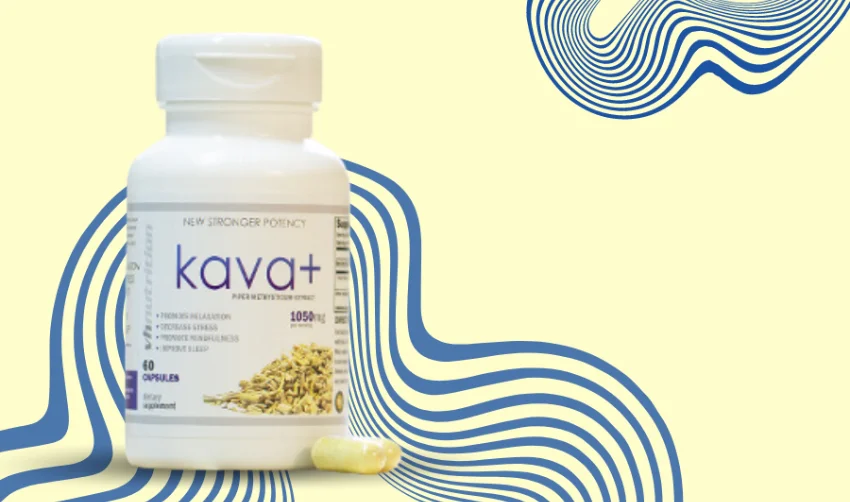
Kava, originating from the South Pacific region, is renowned for its soothing properties and is frequently employed in addressing anxiety and sleep-related concerns, which are prevalent during the menopausal phase.
DHEA
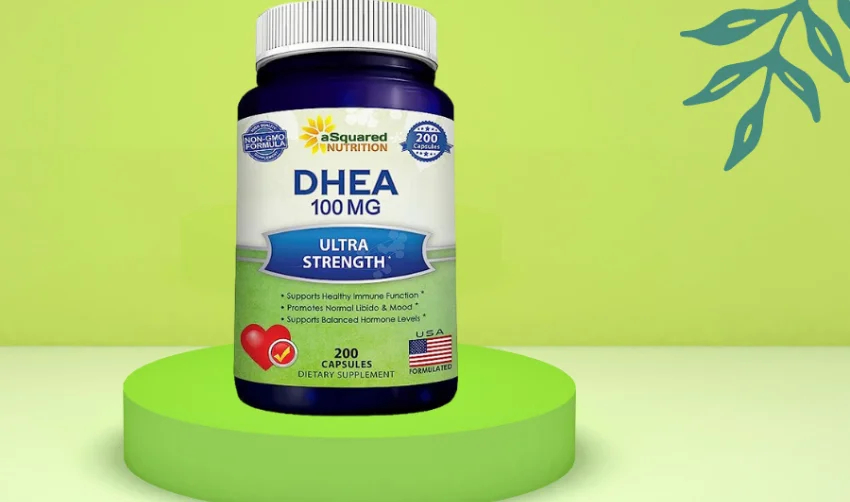
DHEA (Dehydroepiandrosterone), an endocrine hormone synthesized by the adrenal glands, can be obtained in supplement form and is hypothesized to enhance sexual function and overall well-being among women experiencing menopause.
Maca
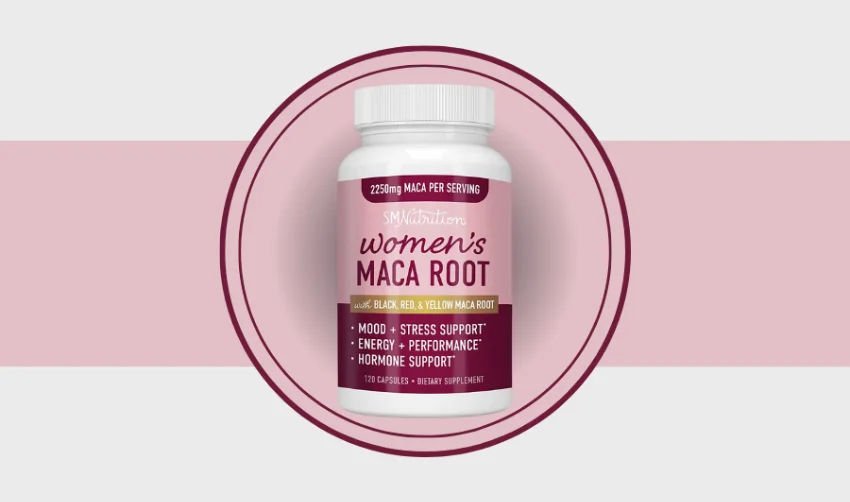
Maca is a plant native to Peru, often referred to as Peruvian ginseng. It is known for its potential benefits in balancing hormone levels and reducing menopause symptoms such as hot flashes, sleep disruptions, and mood swings.
Vitex (Chaste Tree)
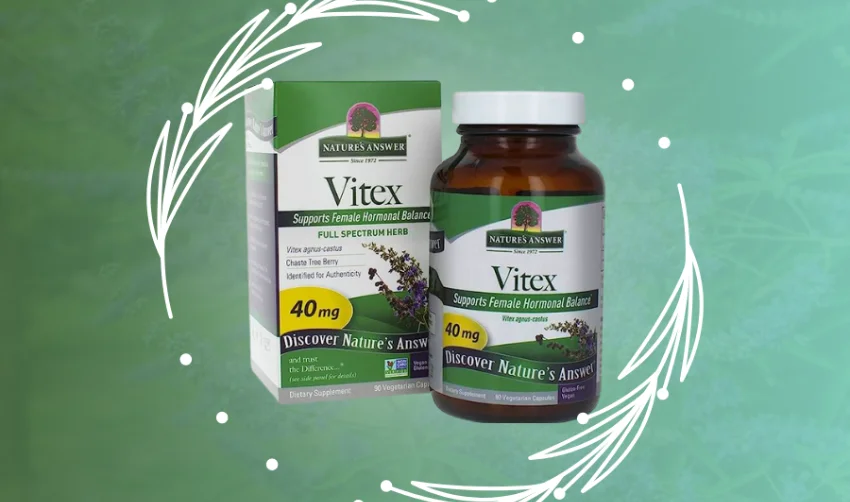
Vitex, known as Chaste Tree, has been used for centuries to help balance women’s hormonal systems. It is believed to help alleviate menopause symptoms such as hot flashes, mood changes, and irregular periods.
Soy Isoflavones
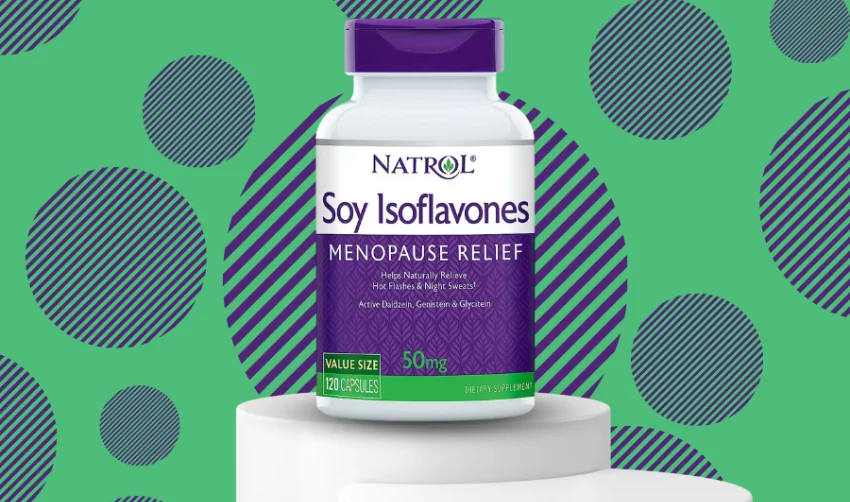
Soy Isoflavones are phytoestrogens, plant-derived compounds with estrogenic activity. They have been found to help reduce the frequency and severity of hot flashes and night sweats in menopausal women.
Conclusion
Menopause is a natural phase in a woman’s life with various physical and emotional changes. While it can be challenging, numerous strategies and resources are available to help manage these changes. Herbal supplements are one such resource that can provide relief from menopause symptoms. However, it’s important to remember that while these supplements can be beneficial, they should be part of a comprehensive approach to menopause management that includes a healthy lifestyle and regular check-ups with a healthcare provider.
From Black Cohosh to Soy Isoflavones, the benefits of herbal medicines in managing menopause symptoms are evident. However, it’s important to remember that what works best will vary from person to person, and it’s crucial to consult with a healthcare provider before starting any new supplement regimen.
Herbal remedies are not just limited to menopause. They can also manage other conditions, such as anxiety and blood pressure. For instance, some of the best herbal remedies for blood pressure include hawthorn, garlic, and flaxseed for anxiety, herbs such as chamomile, valerian root, and lavender are beneficial.
At our herbal medicines in Kensington, MD, we understand the power of natural remedies. We are committed to providing our clients safe and effective herbal solutions for their health needs. Whether you’re dealing with menopause symptoms or other health issues, we’re here to help you navigate your health journey with the power of nature.
Remember, every woman’s menopause journey is unique, and what works for one may not work for another. It’s all about finding what works best for you and your body.


